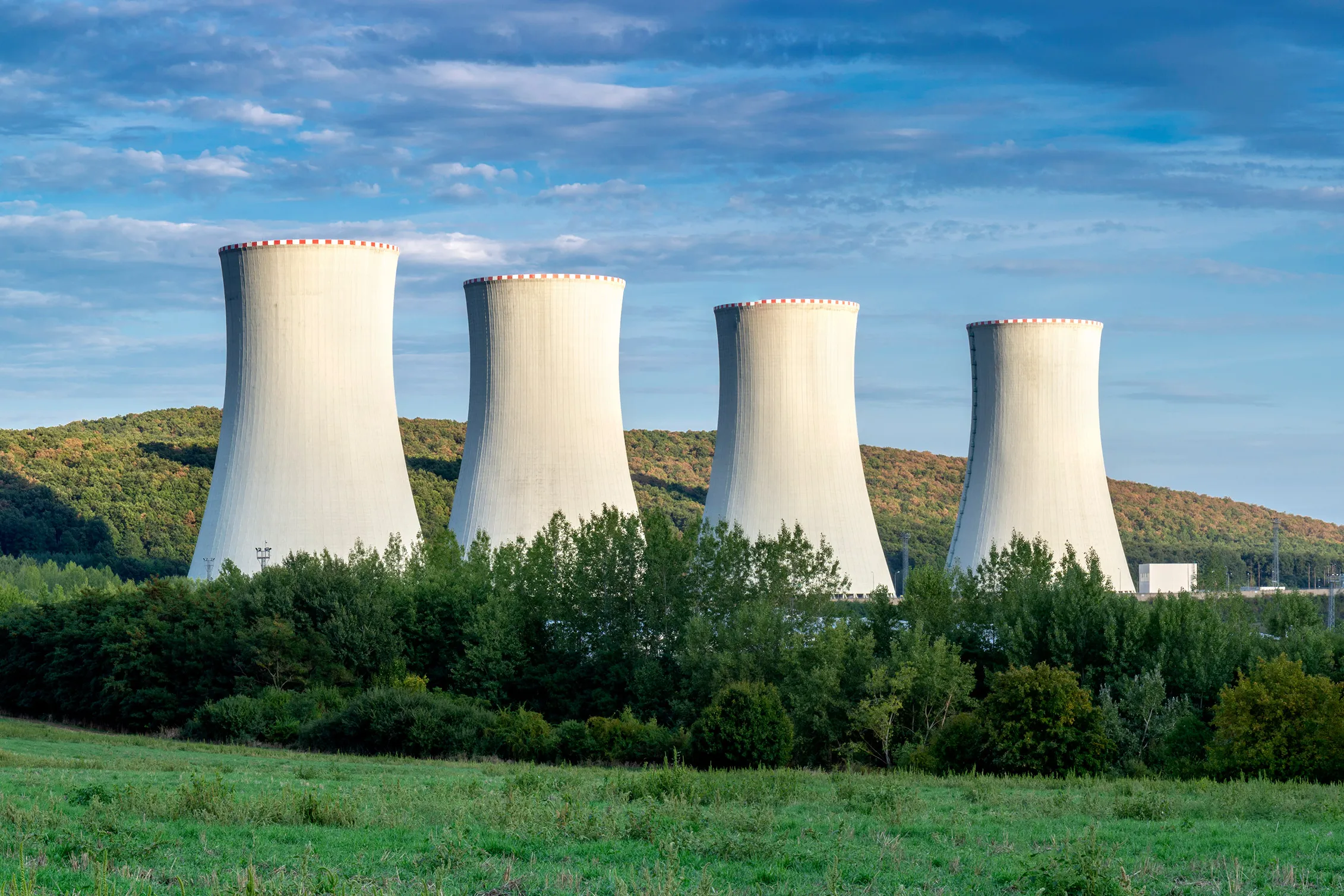In 2019, the European Commission approved an economic development strategy called The European Green Deal, with the primary long-term goal to achieve carbon neutrality in Europe by 2050. In the short term, the goal has been set to increase the EU’s greenhouse gas emission reduction target for 2030 to at least 50% and towards 55% compared with 1990 levels.[1] As part of this initiative, each EU member state must submit a revised National Energy and Climate Plan for 2021-2030. To achieve the set goals, all sectors of the economy are supposed to be reformed, but the leading role is still given to the energy sector, which accounts for 75% of all CO2 emissions in the European Union.
Nuclear energy has been labelled neither clean nor green for decades, allegedly posing severe safety challenges. In pursuing their green policies, some countries have gone to extremes, taking their nuclear power plants off the grid or aspiring to do so. As early as 2011, Germany announced its intention to shut down operations at the three last nuclear power plants by 15 April 2023 at the latest[2], which was implemented on time. The National Climate and Energy Plan, presented in December 2019 by Belgium, another European country on its way toward a sustainable energy system, sets forward a nuclear power phase-out by 2025[3] through the closure of Tihange and Doel, the country’s operating nuclear power plants run under the auspices of the French multinational company Engie S.A. As of now, it turns out that Germany and France have to fix their “nuclear rift,” and Belgium’s nuclear phase-out might never happen.
Germany and France, the EU’s largest economies, show commitment to the targets of the region’s green agenda. Yet, they still have not found common ground about Europe’s energy transition. Pre-existing rifts in the approaches have become ever more evident amid the energy crisis, blocking power market reforms. While Germany promotes its anti-nuclear lobby, saying that “the topic of nuclear power is a dead horse”[4], France allies with other pro-nuclear EU member states. Having held its first formal meeting in May 2023, the alliance decided to “include nuclear energy in all relevant texts currently being prepared”[5] on the EU’s energy transition. In October 2023, the EU countries did not manage to develop a joint position on planned reforms and are now considering scrapping up part of them. This mainly concerns whether excess revenues generated by state-backed, fixed-price power contracts to existing power plants could be used to subsidize industries, which France is eager to do. Germany fears that such measures might facilitate using the nuclear industry to unfairly benefit, allowing pro-nuclear countries to undercut prices, and hence rejects the proposal to overhaul the EU’s power market.
Germany’s concerns are justified since it has completely given up nuclear power production, whereas France has announced new investments in the industry in various forms. As of August 2023, almost one-third of Europe’s nuclear reactors, 56 out of 163, are in France. In 2022, president Macron announced a significant buildup of France’s nuclear power program. In 2024, France reaffirmed its intentions to construct more nuclear reactors, assuming it may require more than 14 new nuclear power units[6]. In addition, in June 2023, French energy group Engie S.A. signed a deal with the Belgian government, extending the life of two nuclear reactors, Doel 4 and Tihange 3, until 2035, which compromises Belgium’s gradual nuclear power phase-out. Though France and Belgium have been on the fence for years, Belgium’s decision, lobbied by the former, came more or less as a surprise.
France-Germany dispute over nuclear power has become a burning issue for the EU’s green agenda, bringing to light new economic considerations and impeding energy transition. Chances are that France and its “nuclear alliance” will finally add nuclear power to the EU’s list of sustainable energy resources. However, it may entail a review of the whole package of energy reforms.
[1] European Commission. Communication From the Commission. The European Green Deal // EUR – Lex. URL: https://eur-lex.europa.eu/legal-content/EN/TXT/?qid=1576150542719&uri=COM%3A2019%3A640%3AFIN.
[2] Emsland, Isar 2, and Neckarwestheim 2 nuclear power plants to be taken off the grid // Federal Ministry for the Environment, Nature Conservation, Nuclear Safety, and Consumer Protection. URL: https://www.bmuv.de/en/pressrelease/germany-brings-era-of-nuclear-power-to-an-end.
[3] NEKP 2021 – 2030. Deel A – Nationaal Plan. Context, doelstelling, beleidslijnen & maatregelen // Nationaal energie- en klimaatplan. – 2019. – p. 16.
[4] German Chancellor Scholz speaks out against new nuclear power, Deutschlandfunk reports // Reuters. URL: https://www.reuters.com/business/energy/german-chancellor-scholz-speaks-out-against-new-nuclear-power-deutschlandfunk-2023-09-01/.
[5] ‘Nuclear alliance’ to meet again at France’s initiative // Euractiv. URL: https://www.euractiv.com/section/energy-environment/news/nuclear-alliance-to-meet-at-frances-initiative-again/.
[6] As nuclear debate nears, French minister sees potential for 14 new reactors // Reuters. URL: https://www.reuters.com/world/europe/nuclear-debate-nears-french-minister-sees-potential-14-new-reactors-2024-01-07/.
Key words: Atomic Energy; Peaceful Atom
NPT
F4/SOR – 24/06/07


